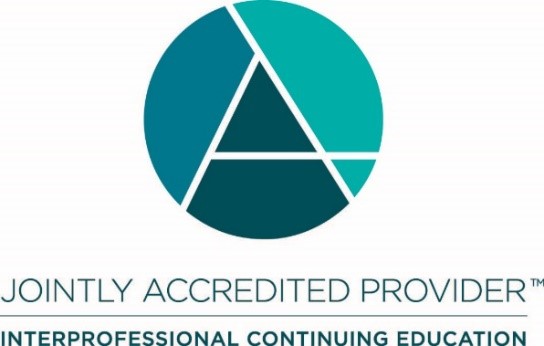Recorded Presentations from the NCCN 2022 Pharmacy Updates Webinar Series
The availability of new therapeutic options and emergence of novel therapies continues to dramatically impact the oncology landscape. The rapid integration of these agents into treatment for various tumor types can be challenging for clinicians. Pharmacists are critical to educating the interprofessional oncology care team about the actions and potential adverse events associated with new and existing therapeutic options. Pharmacists also have an important role in patient education, as well as subsequent monitoring and management of treatment-related toxicities.
Target Audience
This program is designed to meet the educational needs of pharmacists, physicians, nurses, nurse practitioners, physician assistants and other health care professionals who manage patients with cancer.
Learning Objectives
The goal of this program is to ensure that pharmacists, physicians, nurses, nurse practitioners, physician assistants, and other members of the interprofessional oncology care team who manage patients with cancer have the knowledge and skills necessary to:
- Apply the current standards of oncology care and NCCN Clinical Practice Guidelines in Oncology to optimize the management of patients with various cancer types
- Review new, emerging, and novel therapeutic agents and treatment strategies and incorporate these into the management of patients with cancer
- Communicate the importance of a multidisciplinary approach and improve the collaborative performance of the interprofessional oncology care team in the management of patients with cancer
NCCN Medical Education Disclosure Policy
It is the policy of NCCN that all planners, faculty, moderators, authors, reviewers and anyone involved in the planning and delivery of NCCN continuing education activities are expected to disclose ALL financial relationships they have had in the past 24 months with ineligible companies. The ACCME Standards for Integrity and Independence require that individuals who refuse to provide this information will be disqualified from involvement in the planning and implementation of accredited continuing education presented by NCCN. NCCN identifies, mitigates and discloses to learners all relevant financial relationships.
In addition, all content has been reviewed to ensure education promotes safe, effective patient care and does not promote the products or services of an ineligible company. Content, including any presentation of therapeutic options, is fair, balanced, evidence-based, scientifically accurate, and free of commercial bias and marketing.
Definitions
Ineligible Company: An ineligible company is any entity whose primary business is producing, marketing, selling, re-selling, or distributing healthcare products used by or on patients.
Relevant Financial Relationships: Financial relationships of any dollar amount occurring within the past 24 months are defined as relevant if the educational content an individual can control is related to the business lines or products of an ineligible company. There is no minimum financial threshold. We ask for disclosure of ALL financial relationships with ineligible companies, regardless of the amount and regardless of the potential relevance of each relationship to the education.
Faculty Disclaimers
All faculty for this continuing education activity are competent in the subject matter and qualified by experience, training, and/or preparation for the tasks and methods of delivery.
Faculty presentations may include discussion of off-label use. Faculty will disclose that the use in question is not currently approved by the FDA per the product labeling or marketing.
Full disclosure of faculty relationships will be made prior to the activity.

In support of improving patient care, National Comprehensive Cancer Network (NCCN) is jointly accredited by the Accreditation Council for Continuing Medical Education (ACCME), the Accreditation Council for Pharmacy Education (ACPE), and the American Nurses Credentialing Center (ANCC), to provide continuing education for the healthcare team.
Physicians
NCCN designates each enduring material in this series for a maximum of 1.0 AMA PRA Category 1 Credit™. Physicians should claim only the credit commensurate with the extent of their participation in the activity.
Nurses
NCCN designates each educational activity in this series for a maximum of 1.0 contact hour.
Pharmacists
NCCN designates each application-based continuing education activity in this series for 1.0 contact hour (0.10 CEUs) of continuing education credit.
Physician Assistants
NCCN has been authorized by the American Academy of PAs (AAPA) to award AAPA Category 1 CME credit for activities planned in accordance with AAPA CME Criteria. Each activity in this series is designated for 1.0 AAPA Category 1 CME credit. PAs should only claim credit commensurate with the extent of their participation.
Available for an additional fee: each activity is worth 1 hour of BCOP credit

The Hematology/Oncology Pharmacy Association (HOPA) is accredited by the Board of Pharmacy Specialties (BPS) as a provider of board certification oncology credit (BCOP). A BCOP statement of credit will be issued only upon completion of a post-activity evaluation form and post-test, with a passing grade of 75% achieved.
Disclosure of Conflicts of Interest: The Hematology/Oncology Pharmacy Association (HOPA) assesses conflict of interest with its instructors, planners, managers, and other individuals who are in a position to control the content of CE activities. All relevant conflicts of interest that are identified are thoroughly vetted by HOPA for fair balance, scientific objectivity of studies utilized in this activity, and patient care recommendations. HOPA is committed to providing its learners with high-quality CE activities and related materials that promote improvements of quality in healthcare and not a specific proprietary business interest of a commercial interest.
Reported Areas of Conflict: Hematology/Oncology Pharmacy Association does not view the existence of relationships as an implication of bias or that the value of the material is decreased. The content of the activity was planned to be balanced, objective, and scientifically rigorous. Occasionally, authors may express opinions that represent their own viewpoint. Conclusions drawn by participants should be derived from objective analysis of scientific data. Unlabeled/unapproved uses of drugs. All faculty have indicated that they have not referenced unlabeled/unapproved uses of drugs and devices.

 Facebook
Facebook X
X LinkedIn
LinkedIn Forward
Forward